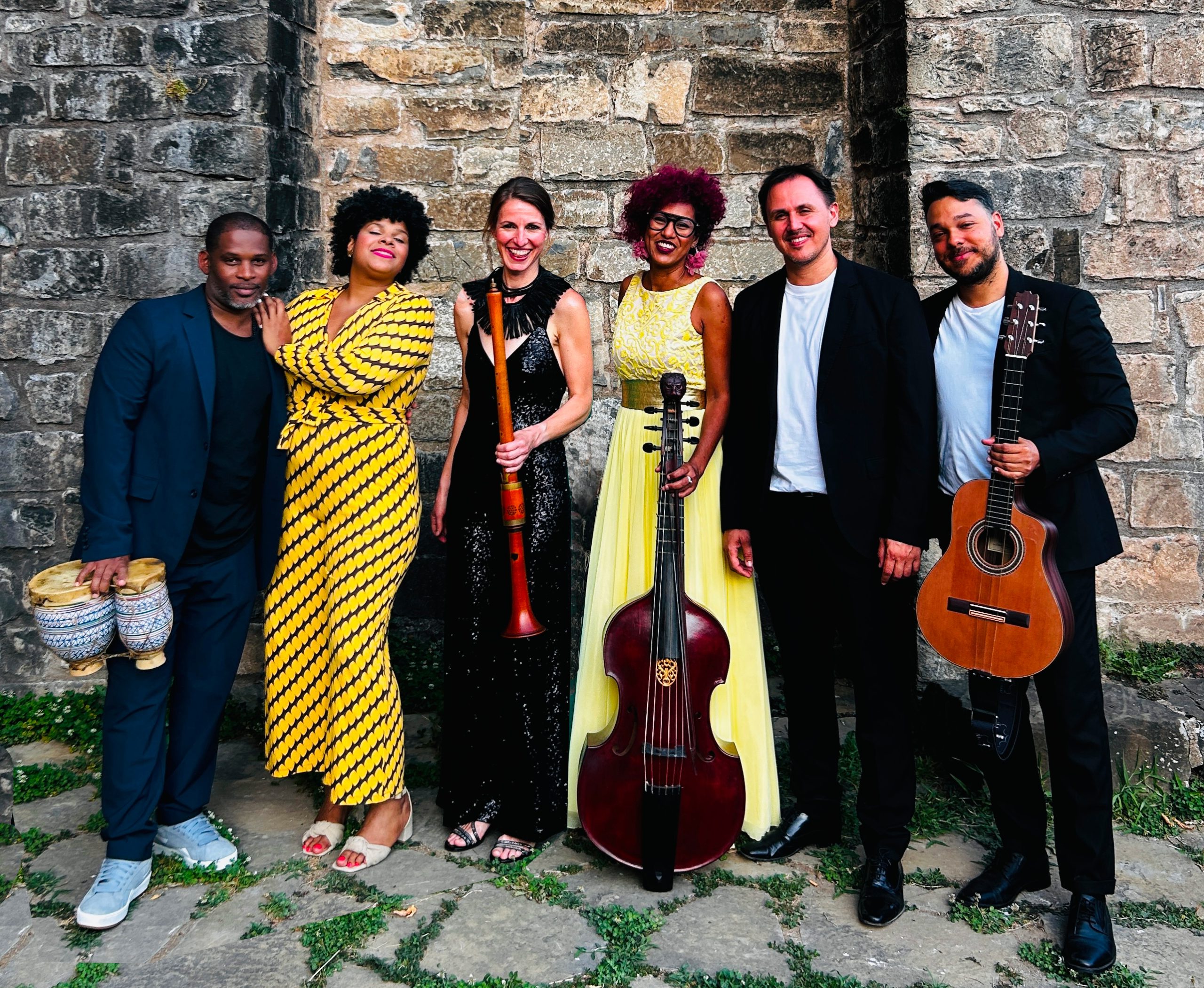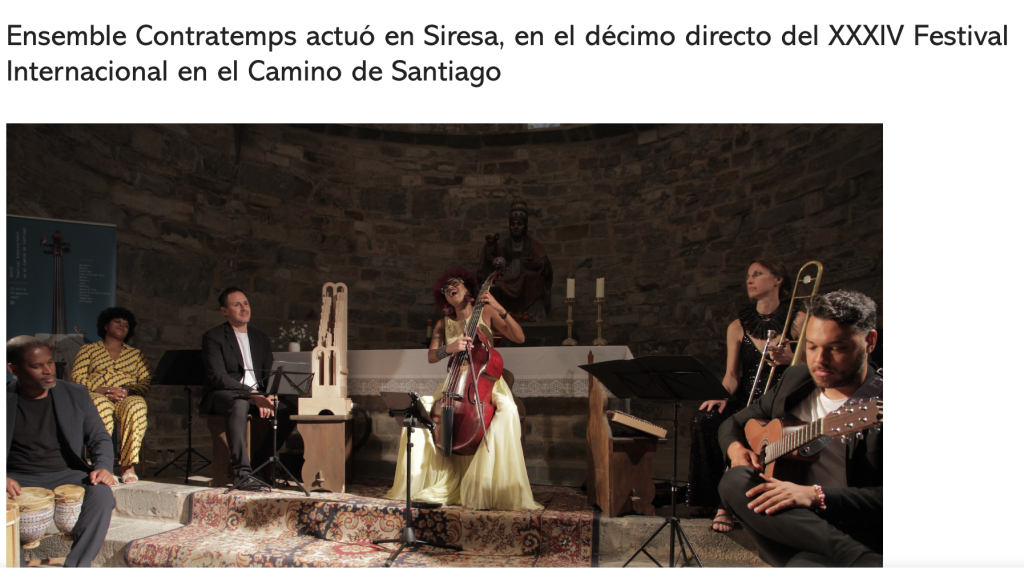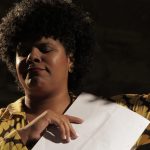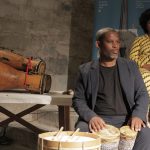CONTRATEMPS PRODUCTIONS

CUBAN SPIRITUAL MUSIC
“More than a concert, Orishas is a narration of how Europe and America engaged in dialogue for centuries through dance and rhythm, intertwining African heritage, Spanish tradition, and European Baroque into a common language.” El Pirineo Aragonés
ABOUT THE PROGRAM
Afro-Cuban spiritual music is a sonic journey and a bridge between worlds. Within it converge African drums, Indigenous voices, and European melodies, weaving a living memory that unites the sacred and the human.
This program invites us to discover the chants to the orishas —such as the powerful Canto a Elegguá, guardian of the pathways— and to rediscover works by composers who brought Cuban spirituality into dialogue with Spanish Renaissance music.
With vibrant dances like the zarambeque and the chacona, which crossed oceans to transform European music, this experience celebrates the power of cultural mestizaje. More than a concert, it is an offering of rhythms and voices that continue to beat in Cuba and that today resound as an echo of spirituality, memory, and shared beauty.
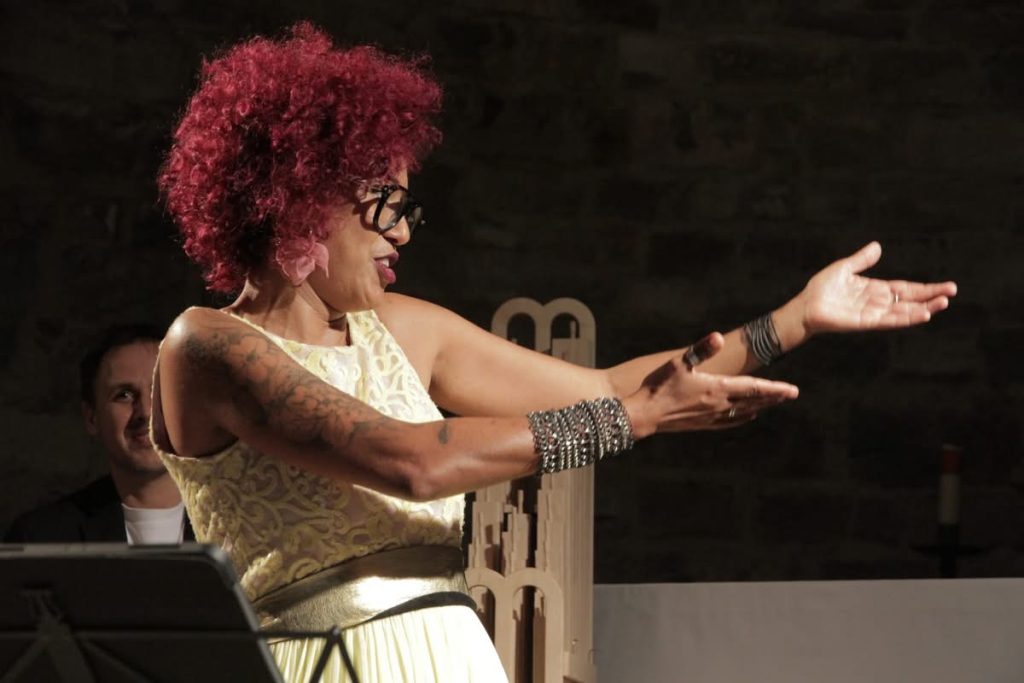
“Music of the highest quality, carried across oceans to intertwine with Cuba’s own culture. Each piece unfolds as a living story of exchange —not only musical, but profoundly social and deeply human.” — El Pirineo Aragonés
“A thoughtful and well-balanced program, achieving the rare feat of blending rhythm and the raw energy of primal dance with the refinement of superb instrumental technique.” — TOT Sant Cugat
LIVE AUDIO
LIVE excerpts from ORISHAS in concert
Festival Camino de Santiago, Siresa, Spain, 2025
«Lixsania Fernández’s viola da gamba is a delight…» (Diario de Noticias de Navarra, 2008)
One of the most promising performers of her generation, Lixsania was born in Cuba. She received an «honours degree» from the «Manuel Castillo Higher Music Conservatory» in Seville, specialising in Viola da Gamba, under the tutelage of Ventura Rico and Alejandro Casal.
Founder of the «Recondita Armonia» Ensemble, she also participates in numerous concerts offered at festivals in countries around the world, under the direction of such prestigious names as Shalev Ad-El, Rinaldo Alessandrini, Rio Terakado, Paul Dyer, Walter Reiter, Raül Refree and Claudio Abbado.
She collaborates with ensembles such as La Chimera (Eduardo Egüez), L´Arpeggiata (Christina Pluhar), Le Concert des Nations (Jordi Savall), Capella Mediterranea (Leonardo Garcia Alarcón), Ars Longa (Teresa Paz), Orpheon Consort (José Vázquez), Il Galdellino, Ensemble Elyma (Gabriel Garrido), or Le Tendre Amour.
She has also been invited as a soloist in orchestras such as the National Orchestra of Spain, the Valencia Symphony Orchestra, the Bilbao Symphony Orchestra, the Orquesta Barroca Sevilla, the Orquesta Barroca Catalana, the Orchestre de Chambre de Toulouse, and the Australian Brandenburg Orchestra. The Recondita Armonia ensemble collaborates with the CNDM in the recovery and diffusion of the Spanish repertoire.
She has recorded two albums for the prestigious Dutch label Brilliant Classics, together with the ensemble Recondita Armonia, one dedicated to the virtuoso viola player and composer Johannes Schenck, and another to the German composer G.F. Handel, which have received wonderful reviews from the most prestigious specialist magazines.
She has made numerous recordings for different radio and television stations around the world and for the record labels Erato, Alia Vox, Naive, Brilliant Classics, NB, CDM, La mà de Guido, Verso, and K617. She is currently a teacher at the “Isaac Albéniz” Conservatory in Girona and at the “Esteban Mazer” courses on historical music.
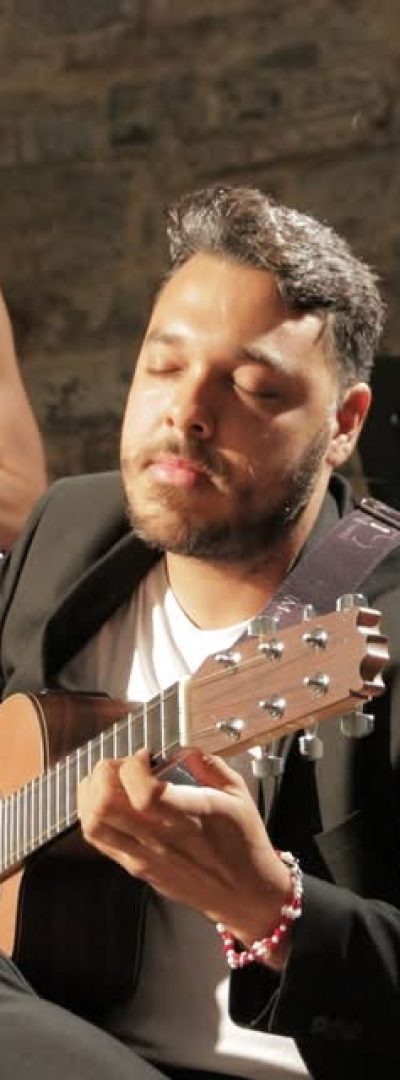
PRODUCTION
Production direction
Jorge Juan Morata
Video/photos
Katy Elkin
Musical arrangements
Jorge Morata & Frank Pereira
Special Thanks
Escola de Música Tradicional Sant Cugat
Production
Col·lectiu Música Antiga de Sant Cugat
PRESS
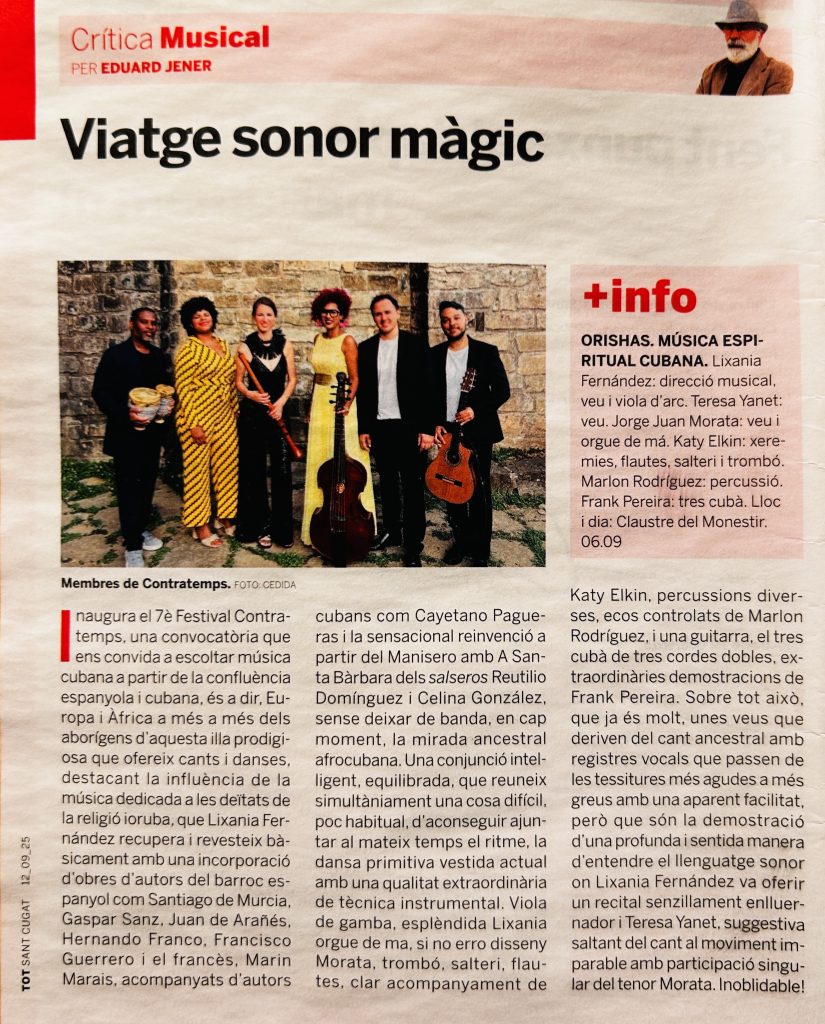
TRANSLATION: “The 7th Contra-temps Festival opened with a program that invited us to experience Cuban music as the product of a remarkable cultural confluence: Spain and Cuba, Europe and Africa, together with the island’s indigenous heritage. From this fusion emerges a wealth of songs and dances, many rooted in the Yoruba religion, whose music dedicated to the orishas has long shaped Cuba’s cultural identity. Lixania Fernández has revived these traditions, weaving them together with works by Spanish Baroque composers such as Santiago de Murcia, Gaspar Sanz, Juan de Arañés, Hernando Franco, and Francisco Guerrero, along with the French composer Marin Marais. To this she added Cuban voices like Cayetano Pagueras, and even a stunning reinvention of El Manisero paired with A Santa Bárbara, the legendary work of Reutilio Domínguez and Celina González — always with a clear, vibrant Afro-Cuban perspective.
The result was an intelligent, finely balanced program that achieved something rare: uniting rhythm, dance, and ancestral energy with extraordinary instrumental refinement. The ensemble shone with a rich palette of sounds — Fernández herself on a luminous viola da gamba, Jorge Morata on a portable organ; trombone, dulcimer, recorders and shawm under the elegant hand of Katy Elkin, a diverse range of percussion expertly shaped by Marlon Rodríguez, and the Cuban tres with its double strings, in dazzling performances by Frank Pereira.
To this already rich tapestry were added voices steeped in ancestral song, moving seamlessly from the highest registers to the deepest tones, performed with apparent ease but carrying great expressive depth. Fernández delivered a recital that was nothing short of radiant, while Teresa Yanet brought a captivating presence, shifting effortlessly between song and dance, joined in memorable fashion by tenor Morata.
An unforgettable evening!”
TRANSLATION: “Orishas: A Musical Bridge Between Baroque Europe and the Soul of Cuba
Ensemble Contratemps performed in Siresa for the tenth time during the 34th International Festival on the Way of St. James (FICS), organized by the Huesca Provincial Council. The concert featured the premiere of Orishas, a new project led by Cuban viol player Lixania Fernández.
It was a sonic journey spanning centuries and oceans, fusing the elegance of early European music with the vitality of traditional Cuban rhythms; an experience that invited the audience not only to listen, but to move in their seats.
From the start, it was clear this was not your typical Baroque recital. The rapport among the musicians — their glances, smiles, the lively pulse of the viola da gamba, plucked strings, and percussion — created a dialogue crossing time and place. “We wanted to show how European dances, like chaconnes, zarabande-style pieces, or canarios, were influenced by Latin American rhythms,” Fernández explained.
The carefully selected repertoire included works by composers such as Cayetano Pagueras, Juan París, and Francisco Guerrero, along with anonymous pieces that bear witness to the cultural blending present in Cuban cathedral music. “Music of the highest quality that crossed oceans and coexisted with Cuba’s own culture,” emphasized the director. Each piece became a living story of not just musical, but social and human exchange.
One of the concert’s great successes was how accessible and intimate the presentation was. Far from rigid protocols, the early music pieces were offered with freshness and freedom — without sacrificing historical authenticity — creating a warm, festive atmosphere, where applause felt like a natural response to shared energy. There was even a nod to the Feast of St. Lawrence, in a night that felt particularly special.
Fernández urged listeners to come “with an open mind, ready to enjoy both new and old sounds,” and the result proved her right. Orishas was more than a concert; it was a narration of how Europe and the Americas have been in dialogue for centuries through dance and rhythm, entwining African heritage, Spanish tradition, and European Baroque into a common language.
Although Johann Sebastian Bach was not the focus of the program — even though the festival’s theme is the endless heritage of the German master — his influence was present in the contrapuntal care and melodic structure, even amid the most Caribbean-inflected turns. “Bach’s music is a reference point and a banner in historical performance; it has accompanied us throughout our career,” the director reminded us.
Ensemble Contratemps is going through a particularly fertile moment. In addition to the upcoming recording of Orishas, they are working on a second album devoted to Vivaldi, and preparing a show with magician Mélanie that will combine early music and theater around the figure of Cagliostro. A busy schedule in a European context that is at times uncertain, with fewer concert programs and tighter deadlines.
“It is essential that festivals on the peninsula continue to support our artists; we have an excellent generation,” concluded Lixania Fernández.”





